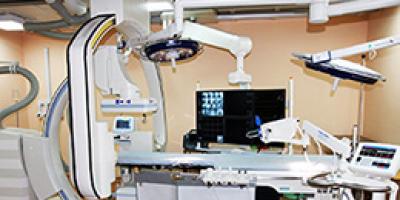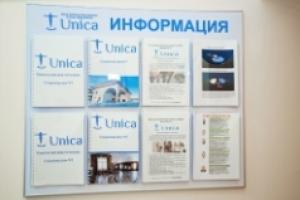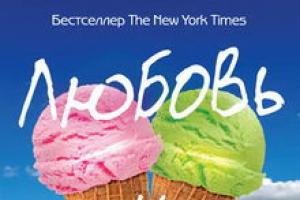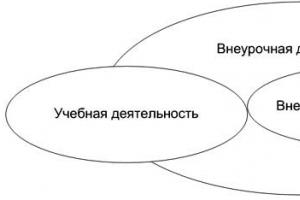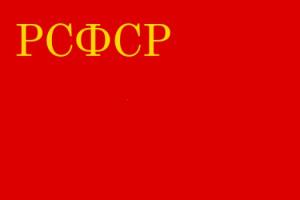Then, in the panel control panel, select "Keyboard".
In the window that appears, select the "Language" tab. You must have 2 languages installed: Russian and English. If Russian is selected as the primary language, then select the “English” language, click on the “Set as primary” button, “OK”, and then restart the computer.
In the Keyboard window, on the Language tab, click the Add button.
In the "Add a language" window that appears, select Language "Polish".
Click "OK" and the "Keyboard" window will remain.
Select the language "English", click "Delete".
The program will ask you to insert the distribution disk.
Usually a reboot is required after this.
After rebooting, select Start | Setting | Control Panel.
In the Control Panel, select "Keyboard".
In the window that appears, select the "Language" tab.
Highlight Language "Polish" and click the "Properties" button.
In the "Language Properties" window that appears, select the "Polish (programming)" layout.
Select the language "English", click "Delete".
Click OK.
Windows NT with Service Packs installed already has support for Eastern European languages.
All you have to do is add the “Polish (programmer)” keyboard layout, and then delete the “English” layout that has become unnecessary.
Windows ME (Millennium)
In the window that appears, select "Add or Remove Programs"
In the window that appears, select the "Windows Installation" tab. Click on the Multilingual Support component.
Select the language "English", click "Delete".
Click the "Composition" button and in the "Multilingual Support" window that appears, check the "Languages of Central Europe" box.
Click "OK", "OK".
In the Control Panel window, select Keyboard.
In the Keyboard window, select the Language tab. You must have 2 languages installed: Russian and English. If Russian is selected as the main language, then select the “English” language, click on the “Set as default” button, and then “Apply”.
Click on the "Add" button, in the "Add a language" window, select Language "Polish".
Click OK. In the remaining "Keyboard" window, select the "English" language, click "Delete".
Restart your computer.
Open the "Keyboards" window from the "Control Panel", click on the "Language" tab, select the "Polish" language, click the "Properties" button and in the "Language Properties" window that appears, select the "Polish Programmer" layout, click "OK" OK".
Select the language "English", click "Delete".
Restart your computer.
Start Menu | Setting | Control Panel.
In the window that appears, click on the “Language and Standards” icon
On the General tab, in the "System language settings" list, select "Central Europe".
In the "Language Properties" window that appears, select the "Polish (programming)" layout.
The program will ask you to insert the distribution disk (remember that the installation files are located in the "i386" subdirectory).
Restart your computer.
Then, in Control Panel, select Keyboard.
In the window that appears, select the "Language and Layouts" tab. You must have 2 languages installed: Russian and English.
Make English the default (there should be a checkmark to the left of the name): select it and click on the “Set as default” button, then click the “Apply” button.
Next, add the Polish language: click the "Add" button, in the window that appears, select Input language - "Polish", and Keyboard layout - "Polish (programmer)";
click "OK".
In the remaining "Properties: Keyboard" window, select the "English" language in the "Installed languages..." list and click "Delete".
Restart your computer.
Then highlight the language "Polish" and click the "Set as default" button.
Then click "OK".
Please note that in Windows 2000 you can use Polish characters in the Russian version in system fields (like names of files or parameters).
Possible problems
Symptom: After installing the Polish layout, it became impossible to switch to the Latin alphabet when entering file names, passwords, in the browser address window...
Reason: You have set the Polish layout incorrectly.
Remedy: Remove the Polish keyboard layout, install the English one instead, and make it the main one (used by default). Then reboot and do everything exactly as it is written in our instructions, not forgetting to reboot where we write about it.
Symptom: when you try to make the Polish layout the main one, a message is displayed stating that such a replacement is impossible.
Remedy: 1. Do everything as written in our instructions, ignoring such messages, but be sure to reboot after that.
Reason: You may have changed the code tables for 1250 coloring (this is done, for example, so that PhotoShop starts writing in Russian).
Remedy: The old values need to be returned.
Click "Start", select the "Run..." menu and enter "regedit" in the "Open" window.
The registry editing window will appear. In it, find the branch "HKEY_LOCAL_MACHINE\SYSTEM\ControlSet001\Control\Nls\CodePage". For parameter "1250" there should be "c_1250.nls" (often replaced with c_1251.nls).
Do the same for the branch "HKEY_LOCAL_MACHINE\ SYSTEM\ ControlSet002\ Control\Nls\CodePage" and for "HKEY_LOCAL_MACHINE\ SYSTEM\ CurrentControlSet\ Control\Nls\CodePage".
Reboot your computer.
Now PhotoShop will not write in Russian, but you will be able to enter Polish characters normally.
P.S. Why "Polish Programmer"?
There are 2 main Polish layouts: "Polish standard" (like on a typewriter), and "Polish programmer". The Polish standard layout, unlike the English one, has a changed location of the “Z” and “Y” keys, as well as “:”, “;”. Using this layout is not very convenient.
You've done everything. How to type special Polish characters?
Change the current language to Polish (using the combination Ctrl+Shift, Alt+Shift, etc., depending on your settings; or on the keyboard indicator).
In order to write "A," "C," "E," etc. press right "Alt", and the corresponding main letter on the keyboard ("Alt+A", "Alt+C", etc.)
The only letter you won't be able to write this way is "Z" with a line.
It is entered by the key combination "Alt+X" ("X" is the next key after "Z").
These keyboard shortcuts work in all Windows programs.
 Finally, when all your “torment” is over, we will note that in emails it is possible to dispense with the use of special Polish characters altogether. ;-) Jun 19 Traveling is always exciting, because it’s so nice to visit new places and get new experiences. But sometimes the problem of knowing the language, or rather, not knowing it, arises. Moreover, when going to Poland, I would like to communicate specifically
Finally, when all your “torment” is over, we will note that in emails it is possible to dispense with the use of special Polish characters altogether. ;-) Jun 19 Traveling is always exciting, because it’s so nice to visit new places and get new experiences. But sometimes the problem of knowing the language, or rather, not knowing it, arises. Moreover, when going to Poland, I would like to communicate specifically
So, you have finally arrived on a trip to Poland. Let's start our Russian-Polish phrasebook with greetings, which is an indispensable part of any conversation. Of course, the actual pronunciation of some words is quite difficult to describe, but even with minor errors in pronunciation, they will definitely understand and help you. Let's not forget that The stress in all words is on the penultimate syllable.
"Basic forms of communication"
| Russian language | Polish language | Pronunciation |
|---|---|---|
| Thank you | Dziękuję | Jenkuen |
| Thank you for your concern/help/invitation/advice | Dziękuję za opieke / pomoc / zaproszenie / rade | Jenkuen for custody / help / requested / rade |
| Please | Prosze | Prosheng |
| I'm very pleased | Jestem bardzo zadowolony | Estem Bardzo are satisfied |
| Please help me | Proszę mi pomóc | Proshen mi pomuts |
| Let me ask | Pozwólcie że zapytam | I'll torture you more vulgarly |
| It's OK! | Nic nie szkodzi! | Nits ne skoji |
| Cheers! | Na zdrowie! | Cheers! |
| Bon appetit! | Smacznego! | Smachnego! |
| I'm in hurry | Śpieszę się | Shpeshen puppy |
| Yes | So | So |
| No | Nie | Not |
| I agree | Zgadzam się | Zgadzam puppy |
| It's clear | Jasne | Yasne |
| I don't mind | Nie mam nic przeciwko | Not mom proszecivko |
| Unfortunately, I don't have time | Niestety, nie mam czasu | Nestats, no mothers |
| With pleasure | Z przyjemnoscią | For a night |
"Railway station"
Upon arrival in Poland, you find yourself at the train station. Let's call the following table “Station”. But phrases from it will help you for your further journey.
| Russian language | Polish language | Pronunciation |
|---|---|---|
| How to get to the ticket office? | Gdzie tu jest kasa biletowa? | Gje tu eat kasa ticket? |
| What time will the train arrive to...? | O ktorej godzinie mam polaczenie do...? | About kturei gojine mam polonchen do...? |
| How many stations does it take to...? | Jak wiele bedzie do...? | Yak vele benje do...? |
| This platform number...? | Liczba ta platforma...? | Lichba that platform...? |
| Where should the transplant be made? | Gdzie trzeba sie przesiasc? | Gje tsheba schen psheshchenschch? |
| From which platform does the train depart to...? | Z ktorego peronu odjezdza pociag do ...? | Z kturego peronu clothes pochong do...? |
| Give me a ticket for a sleeping car/second class. | Prosze o bilet sypialny/drugiej klasy. | Proshe about the ticket strewn / other klyas. |
| What station? | So to za stacja? | What's the point? |
| Where is the dining car located? | Gdzie znajduje sie wagon restauracyjny? | Gdzhe know the carriage of the restaurates? |
"Transport"
| Russian language | Polish language | Pronunciation |
|---|---|---|
| Where is the nearest bus/tram/trolleybus stop? | Gdzie jest najblizszy przystanek autobusowy / tramwaju / trolejbusowy? | Gje eats the nearest bus/tram/trolleybus? |
| Where is the nearest subway station? | Gdzie jest najblizsza stacja metra? | Gje eats the nearest hundred meters? |
| What tram/bus/trolleybus can I take to...? | Jakim tramwajem / autobusem / trolejbusem moge dojechac do...? | Which tram/autobus/trolleybus can you use to get to...? |
| Where should I change trains? | Gdzie sie mam przesiasc? | Gje schen mam psheschonschch? |
| How often do the buses/trams run? | Jak czesto jezdza autobusy / tramwaje? | Yak chensto ezhdzhon buses/trams? |
| What time does the first/last bus leave? | O ktorej godzinie pierwszy / ostatni autobus? | About kturei gojin pervshi / ostatni bus? |
| Could you tell me when I need to leave? | Prosze powiedziec, kiedy wysiasc? | Proshe povedzhech sneakers vyschonschch? |
| What time does the bus leave to...? | O ktorej godzinie odchodzi autobus do...? | About kturei gojine odhoji bus to...? |
| Where can I get a bus to...? | Gdzie mozna pojechac autobusem do ...? | Is it possible to go by bus to...? |
"City, orientation"
| Russian language | Polish language | Pronunciation |
|---|---|---|
| Where is...? | Gdzie best...? | Gje eats...? |
| How many kilometers to...? | Jak wiele kilometrow do...? | How many kilometers is it to...? |
| How can I find this address? | Jak znalezc ten addresses? | How did you know the address? |
| Could you show me on the map where I am now? | Czy moze mi pan (i) pokazac na mapie, w ktorym miejscu teraz jestem? | What can you show on the map, in kturim meissu teraz estem? |
| How long does it take to get there by car/walk? | Jak dlugo trzeba czekac, aby osiagnac tam samochodem / pieszo? | How long will it take to check, if only at night there is a self-propelled vehicle / on foot? |
| Can you show on the map where this place is? | Mozna pokazac na mapie, gdzie to jest? | Can you show it on the map, where does it eat? |
| How to get to the city center? | Jak dostac sie do centrum miasta? | How to get a puppy to the center of the meat? |
| Are we going to... right? | Jedziemy do prawidlowego...? | Edzemy before the truth...? |
"Hotel"
If you go on a trip on your own, without the services of a travel agency, then you will definitely need to book a hotel.
| Russian language | Polish language | Pronunciation |
|---|---|---|
| Do you have a single/double room in the hotel? | Masz jedno / dwuosobowy pokoj w hotelu? | Mash edno / biosobovy buy in the hotel? |
| Do you have any available rooms? | Czy ma pan (i) jakies wolne pokoje? | Chy ma pan(i) yakesh volne rest? |
| I (don't) like this number. | Ten number do mnie (nie) podoba. | Ten number is (not) like me. |
| How much is the room with bath/breakfast/without breakfast/full board? | Ile jest pokoj z lazienka / sniadaniem / bez sniadania / pelne wyzywienie? | Ile eats pokuy with lazhenkom / shnyadan / without shnyadan / peune vyzhivene? |
| Is there a cheaper/better room? | Tam jest wiele taniej/lepiej? | Is there vele tanei/lepei there? |
| A hotel room has been reserved for me. | Mialem zarezerwowane dla pokoju hotelowego. | Meowem reserved for the peace of the hotel. |
| What floor is the room located on? | Na ktorym pietrze jest pokoj? | On kturym pentshe eats pokuy? |
| Is there air conditioning / TV / telephone / refrigerator in the room? | Czy jest klimatyzacja / telewizor / telefon / lodowka? | Why eat air conditioning / TV / telephone / ice blower? |
| When and where can you have breakfast? | Kiedy i gdzie mozna zjesc sniadanie? | Can you get sneakers and shoes? |
| What time is breakfast? | Ile sniadanie? | Ile shnyadane? |
| Do you have a buffet? | Czy masz szwedzki stol? | What kind of swedish chair is it? |
| Can I leave it in the safe? | Moge zostavic w sejfie? | Can you put it in the safe? |
| Where are the toilets located? | Gdzie best toaleta? | Does Gje eat toilet? |
| Could you please bring a blanket? | Can you przyniesc koc? | Can you pshineshchch kots? |
| There is no soap/towel/hot water in my room. | W moim pokoju nie ma mydlo / reczniki / goracej wody. | In my peace there is no thought / ranchers / gorontsy water. |
| Switch/lights/radio/AC/fan/heating not working. | Nie dziala przelacznik / swiatlo / radio / klimatyzacji / wentylatora / telewizor / ogrzewania. | Not dzhyala pshelonchnik / shvyatlo / radio / climate control / fan / TV / ogzhevanya. |
| Wake me up... please. | Obudz mnie...prosze. | Tell me... asked. |
| I'll pay in cash. | Zaplace gotowka. | Zaplatsen gotuvkon. |
| I'll pay with a credit card. | Zaplace karta kredytowa. | Zaplatsen with a credit card. |
"Bar, restaurant, cafe, shop"
And of course, in the Russian-Polish phrasebook you will need phrases in order to refresh yourself or buy something in a store.
| Russian language | Polish language | Pronunciation |
|---|---|---|
| Could you recommend a good/inexpensive restaurant? | Czy moze pan (i) polecic dobry / tani restauracji? | Why can pan(s) treat good / tani restaurates? |
| What time does the restaurant open/close? | Restauracja na co otwiera / zamyka? | Restauratsya on the opening/lock? |
| Where is the nearest restaurant? | Gdzie jest najblizsza restauracja? | Does Gje eat the closest restaurant? |
| I would like to book a table for two/three/four. | Chcialbym zarezerwowac stolik dla dwoch / trzech / czterech. | Khchalbym reserve a table for two / tshekh / chtereh. |
| Do you have a table in the corner / outdoors / near the window / in a non-smoking room? | Czy macie stolik w rogu / na zewnatrz / w poblizu okien / w zakaz palenia? | Why mache table in the horn / on zevnontzh / in the closer window / in the order of the fire? |
| What do you recommend? | Co proponujemy? | Are they proponable? |
| Menu, please. | Poprosze menu. | Please ask for the menu. |
| Do you have a special menu for diabetics? | Czy macie specjalne menu dla diabetykow? | What is the special menu for Diabetykuv? |
| Do you have dishes for children? | Czy macie dania dla dzieci? | What is the tribute to mache for dzhechi? |
| There must be a mistake. I ordered)... | To musi byc pomylka. Zamowilem (a) ... | That's a damn mess. Zamovilem... |
| The check, please. | Prosze o rachunek. | Ask for rahunek. |
| We liked. Thank you. | Podobalo nam sie to. Dziekuje. | It was fitting for us to do that. Jenque. |
| Where is the nearest store? | Gdzie sie znajduje sklep? | Do you know the crypt? |
| Where can I buy...? | Gdzie moge kupic...? | Gje mogem cupich...? |
| Excuse me, do you have...? | Niestety, ma pan (i) ...? | Nyestats, ma pan(i) ...? |
| I would like to buy... | Chcialbym kupic... | Khchalbym buy... |
| Could you wrap this for me? | Czy moze pan dac mi zwrocic? | Chi mozhe pan dach mi zvruchich? |
| How much does it cost? | Ile to kosztuje? | Ile to koshtue? |
| Can I try this on? | Can you sprobowac? | Can we sprubovat? |
| Is there any other color? | What's the best inny color? | What does Inny Kohler eat? |
| Is there a smaller/larger size? | Czy sa rozmiar mniejszy / wiekszy? | What is the puppy of Rosmyar Mneishi/Venkshi? |
| I need half a kilo / a kilo / two kilos | Potrzebuje pol kilo / kilogram / dwa kilograma | Potshebuen pul kilö / kilogram / two kilograms |
It will become indispensable for tourists. The phrasebook also contains phrases in Russian and Polish, as well as pronunciation of the necessary phrases.
Did you see an error in the text? Select it and press Ctrl+Enter. Thank you!
Russian-Polish phrasebook - a cheat sheet for tourists traveling around Poland. A short phrasebook with pronunciation includes words and phrases commonly used in speech, which may be useful for independent travelers to navigate in cities, communicate in hotels, restaurants and shops.
First of all, it’s worth noting and remembering polite phrases - using them will help you win over your interlocutor. Please note that you should address strangers in the third person (pan/pani).
If you are going to visit non-tourist canteens and restaurants where mainly locals dine, be prepared for the fact that the menu may be exclusively in Polish. In this case, not only a phrasebook, but also a wider list of main dishes with explanations in Russian will be very useful.
Some words in Polish may seem similar in their spelling and sound, but their meaning is not always predictable. For example, Polish pierogi are dumplings that can have a variety of fillings, and sklep is a regular store. There are quite a lot of similar cases, and a Polish phrasebook, supplemented by an offline dictionary, will help, if possible, avoid translation incidents.
The table below shows the original spelling of words and phrases, as well as approximate pronunciation - based on transcription.
Common phrases
| Hello (good morning, good afternoon) | dzień dobry | J'en are kind |
| Good evening | dobry wieczor | good evening |
| Good night | dobranoc | dobranets |
| Hello | cześć | cheschch |
| Goodbye | do widzenia | until Wizen |
| Thank you | dziękuję / dziękuję bardzo | j"enkue / j"enkue barzo |
| Sorry | przepraszam | psheprasham |
| Bon appetit | smacznego | delicious |
| Yes | so | So |
| No | nie | Not |
Transport
| Station | stacja | statsya |
| Stop | przystanek | Przystanek |
| Train Station | dworzec kolejowy | palace of the rut |
| Airport | lotnisko | letnisko |
| Bus station | dworzec autobusowy | bus dwarf |
| Transfer | przesiadka | pshesadka |
| Luggage storage | przechowalnia bagażu | pshechovalnya luggage |
| Hand luggage | bagaż podręczny | luggage |
| Arrival | przybycie | Przybycze |
| Departure | clothing | dressier |
| Cash register | kasa | casa |
| Ticket | ticket | ticket |
| Can you call a taxi? | Czy moze pan(i) przywolac takso’wke? | Chshi mozhe pan(i) pshivolach taksufke? |
At the hotel
In a restaurant, canteen, store
| Soup | zupa | Zupa |
| Snack | przystawka | pshishtavka |
| Hot dish | Danie Gorące | Dana Gorontse |
| Garnish | dodatki | extras |
| Beverages | napoje | drunk |
| Tea | herbata | herbata |
| Coffee | kawa | kava |
| Meat | mięso | menso |
| Beef | wolowina | whoa |
| Pork | wieprzowina | Wepszowina |
| Chicken | kurczak | kurchak |
| Fish | ryba | fish |
| Vegetables | warzywa | vazhiva |
| Potato | ziemniaki | dugouts |
| The check, please | Prosze o rachunek | Ask about rahunek |
| Shop | sklep | crypt |
| Market | rynek | market |
| Dining room | jadalnia | food shop |
| What is the price...? | Ile kosztuje...? | Ile Kostue...? |
Months
Days of the week
Numbers
| 0 | zero | zero |
| 1 | jeden | eaten |
| 2 | dwa | two |
| 3 | trzy | tshi |
| 4 | cztery | chters |
| 5 | pięć | pench |
| 6 | sześć | sheshchch |
| 7 | siedem | we are generous |
| 8 | osiem | generally |
| 9 | dziewięć | j"wench |
| 10 | dzesięć | j "yeschench |
| 100 | sto | one hundred |
| 1000 | tysiąc | thousand |
It’s great to speak Polish fluently, without an accent and use past tense forms or change numerals without a single mistake. But it is equally important to sound lively and authentic in a foreign language. Using introductory words, particles and linking words in your speech will help you speak like a real Pole. It is good to demonstrate knowledge of such vocabulary at university entrance exams, at the Pole’s Card exam, and in negotiations with Polish clients. Even if your Polish vocabulary is limited, using the words discussed below will make an impression on your interlocutor.
So, let's begin.
Więc [crown]- means, that is, so, so.
- To the best pilna sprawa, więc musimy działać szybciej. - This is an important matter, so we must work faster.
- A więc jeżeli chcecie wyjechać do Polski, musicie załatwić sobie wizę. - So, if you want to go to Poland, you must get yourself a visa.
- Dlaczego to zrobiłaś? - No, no… Myślałam, że się uda... - Why did you do this? - Well, you know... I thought it would work out...
- Nie uczyłam się, więc dostałam jedynkę. - I didn’t study, so I got a unit.
- Przyjechali wszyscy, a więc mama, tata, siostry. - Everyone has arrived, that is, mom, dad, sisters.
- No time, dobrze, omówimy następny temat. - Well, okay, let's discuss the next question/topic.
- Więc t wierdzisz, że nie masz z tym nic wspólnego? - So, you're saying that you have nothing to do with this?
Also good to consume więc, answering a question related to listing something or the question “where did it all start?”
A wię c po kolei, to było tak... - Which means in turn, it was like this...
Czyli- that is, in this way, and therefore.
This word will help summarize, clarify what was said and “glue” the two parts of the sentence together.
- To się nazywa bezokolicznik, czyli bezosobowy czasownik. - This is an infinitive, that is, an impersonal verb.
- On przyszedł na godzinę później, czyli się spóźnił. - He arrived an hour late, that is, he was late.
- Jutro jedziemy nad morze, czyli nie będziemy mogli pójść na koncert. - Tomorrow we are going to the sea, which means we won’t be able to go to the concert.
Oczywiście- obviously, of course, of course.
Mainly used as an affirmative answer to a question that does not raise doubts:
- Oczywiście nikogo już tam nie było. - Of course, no one was there anymore.
- To był oczywiście zły dzień. - It was, of course, a bad day.
- Mam oczywiście na myśli ciebie. - I, of course, meant you.
- Pójdziesz z nami do kina? - Oczywiście!-Will you go to the cinema with us? - Certainly!
N.B. ! In Polish, unlike Russian, the word oczywiś cie is not separated by commas on both sides.
Owszem- Yes, of course; by itself.
Used as an affirmative answer to the interlocutor’s question
- Chyba nie zrobisz teraz tego? - Owszem, zrobę. - You won’t do this now, will you? - Of course I will.
- Lubisz polskie potrawy? - Owszem, ale nie bardzo lubię bigosu. - Do you like Polish cuisine? - Yes, but I don’t really like bigos.
- Wiedziałaś o tym wszystkim? - Owszem. - Did you know about all this? - By itself.
Rzeczywiście- really.
We can also use it when we want to show surprise ( Truth? seriously?)
- Zobacz, ona narobiła tyle pomyłek, a powiedziała, że napisała dobrze. - Rzeczywiście, dawno nie widziałam tak źle napisanego testu. - Look, she made so many mistakes, but she said that she wrote well. - It’s true that I haven’t seen such a poorly written test for a long time.
- Czy rzeczywiście opowiadasz tak jak było? -Are you really telling it like it happened?
- Rzeczywiście? Pracowałaś w lombardzie? - Is it true? Did you work in a pawn shop?
Naprawdę- synonym rzeczywiście; really, really.
By using this word, we either confirm the veracity of what was said, or express our surprise.
- Naprawdę nie wiesz, who to zrobił? - You don’t actually know who did it?
- Czego so naprawdę ode mnie chcesz? - What do you really want from me?
- To best naprawdę dobry człowiek. - This is actually a good person.
- Ty naprawdę myślałeś, że pozwolę ci to zrobić? “Did you actually think I would let you do this?”

Jasne- the same as oczywiście, only more conversational.
- Czy ona pójdzie ze mną do kina? - Jasne,że pójdzie! Nie pozwolę jej siedzieć w domu. - Will she go to the cinema with me? - Of course / Of course it will! I won't let her sit at home.
Właśnie- actually, exactly, exactly.
Poles use this word very often.
- Lektorka powiedziała, że będziemy mieli sprawdzian w poniedziałek. - No problem, mówiłam ci, po co nie słuchałaś? - The teacher said that on Monday we will have a test (test). - That's right, I told you, why didn't you listen?
- Koledzy! Mam ciekawą historię dla was! - No problem opowiadam już, nie przeszkadzaj. - Friends, I have an interesting story for you! - And I’m already telling it, don’t bother me.
- Właśnie to, co Pani powiedziała, mnie najbardziej interesuje. - It is what you said that interests me most.
- Właśnie nie wiem, jak to powiedzieć. - Actually, I don’t know how to say this.
- Właśnie dzwoniłem do Pana. - I just called you.
- Tato, to właśnie jest mój chłopak. - Dad, this is actually my boyfriend.
- Czy mogę jechać z tobą? Właśnie uciekł mi tramwaj. -Can I go with you? I just didn’t have time to catch the tram (my tram just left).
NB! No = Russian "well"
Powiem szczerze/powiem ci szczerze/powiem Pani szczerze/powiem Panu szczerze- Honestly.
You can use the pronouns Pan/Pani if you want to add formality to your statement:
- Powiem szczerze, że nie miałam na myśli obrażać ciebie. - Honestly, I didn’t want to offend you.
- Powiem Panu szczerze, że nie bardzo się znam na czasownikach. - I’ll be honest, I don’t really understand the topic of verbs.
Powiem ci- I'll tell you.
- Powiem ci, że ta kobieta jest bardzo atrakcyjna. - I'll tell you that this woman is very attractive.
- Powiem ci, kim jest ta dziewczyna - aniołem. - I'll tell you who this girl is - an angel.
Przecież- actually, after all (or maybe not translated at all).
Has nothing to do with the word przeciwnie (disgusting, on the contrary, on the contrary):
- Przecież mówiłam ci, że dzisiaj ja idę z psem. - I told you that today I’m going for a walk with the dog.
- Nie wiem, dlaczego nie przyszedł, przecież umawialiśmy się! - I don’t know why he didn’t come, because we agreed!
No wiesz- well, well, damn it, you know.
Usually these words illustrate some kind of disappointment, surprise, or confirmation of a guess (like: well, you know):
- Chcesz jajecznicę? - So. - Patelnia i jajka są tam, zrób sobie sam. - No wiesz…- Do you want scrambled eggs? - Yes. - A frying pan and eggs there, do it yourself. - Here you go…
- Kupiłam sobie tą bluzkę, no wiesz, z takim długim rękawem, co mi się wtedy spodobała. - I bought myself a blouse, you know/remember, with such long sleeves that I liked it then.
- No wiesz, ona zawsze ma wybór. - Well, you know, she always has a choice.
- A potem pomyślałem: " No wiesz, zrobiłeś to!” - And then I thought: “Well, you did it!”

Niestety- Unfortunately.
A word that comes up already in the first lessons of the Polish language, but at an advanced level often manages to fly out of your head:
- Czy wie pan, która teraz godzina? - Niestety, nie wiem, nie mam zegarka. - Do you know what time it is now? - Unfortunately, no, I don’t have a watch with me.
- Niestety, nie da się tego zrobic. - Unfortunately, it won’t be possible to do this.
Ponieważ- because.
This is a conjunction expressing the cause (can be replaced by the conjunction bo or latego ż e).
- Nie zrobiłam tego zadania, ponieważ nie miałam książki. - I didn’t do this task because I didn’t have a book.
- On nie odebrał słuchawki, ponieważ był na zajęciach. - He didn’t answer the phone because he was in class.
Serio?Na serio? - seriously? no kidding? Truth?
- Dostałam jedynkę z matematyki, mama mnie zabije… - Mówisz Serio? No to musisz jakoś to naprawić! - I got a unit in mathematics, my mother will kill me... - Are you serious? Well, you have to fix all this somehow!
- Nie bierz tego na serio, to głupi żart. - Don't take this seriously, it's a stupid joke.
- Kupiliśmy nowe mieszkanie! - Serio? Gratuluję! - We bought a new apartment! - Seriously? Congratulations!

Na razie- Bye.
Many people know this word only in meaning Goodbye. However na razie can also be used to mean for now:
- Już zdecydowałeś, dokąd pojedziesz na weekend? - Na razie(jeszcze) nie. -. Have you already decided where you will go this weekend? - Not yet.
- Czy zostajesz się w pracy? - Na razie so. -Are you staying at work? - For now, yes.
- Moja mama na razie jeszcze nie była w Polsce, ale chcę, żeby zrobiła sobie wizę i przyjechała. - My mother has not been to Poland yet, but I want her to get a visa and come.
No good- OK then; OK.
Typically used at the beginning of a sentence.
- No good, please do kina. - Okay, let's go to the cinema.
- No good, niech ci będzie. - Well, okay, let it be your way.

By using these words you will be able to give the impression that you speak Polish well. Also pay attention to the constructions used above and use them in your speech.

Many lovers of foreign road trips willy-nilly pass through Poland. Some people really don’t like Poland because of the narrow roads and heavy traffic.
Someone is trying in every possible way to get around it, using the Stockholm-Rodby and Klaipeda-Sassnitz ferries.
The majority (judging by the pre-New Year queues in and Domachevo) still travel through Poland. And once they go, they communicate with local residents in hotels, cafes, gas stations or, God forbid, in services. You can, of course, like the hero of The Marriage of Figaro, who made do with the only English expression God damn it, try to act in Poland as well. But, I’m afraid, you won’t get by with “Clear Cholera” alone :) English, French and German will not always help. We will try to compile a short glossary of the necessary terms and expressions. Let's start with greetings. One has only to take into account that in Polish there is no our polite “you”. Therefore, addressing “you” is not at all familiar. There is also an official version of address in the 3rd person singular using the words “pan” or “pani”.
Good afternoon – Dzien dobry (good day)
Good evening – Dobry wieczor (good evening)
Tomorrow - Jutro (yutro)
Morning – Ranek (early) Morning – Rano (early)
Thank you – Dziekuje(zenkuje)
Please – Prosze (prosher)
Sorry – Przepraszam (psheprasham)
The Polish language has a lot of sibilant sounds. The combination “sz” is pronounced like “sh”, “cz” - like “ch”, “rz” - like “zh” or “sh”.
Now let's turn to road service facilities and other inscriptions found along the road.
Let's start with gas stations. In Polish they are called “Stacija paliw” (paliw station). There are almost no old gas stations left in Poland. Modern ones belong to both local chains “Orlen”, “Huzar”, “Bliska”,
and transnational “Statoil”, “BP”, “Shell”. Fuel on the former is slightly cheaper than on the latter.
At the price stands everything is quite simple. ON means diesel fuel, and LPG means gas.
The next most important after the gas station is the car wash. Moreover, at least 700 km to Brest usually leave very noticeable dirty marks on the body of the car. In Brest, as always, “by appointment only,” so we will wash in Poland. And a Polish car wash is much cheaper than ours. The author usually washed a dirty car for 12-18 pln. (150-220 rubles) On the outskirts of cities along the main roads, the following inscriptions are easily found:
They mean the following: at the end there is a car wash. Top – hand wash, interior cleaning, wax coating. A stationary sink might look like this. The inscription “bezdotykowa” means “contactless”.
There are a lot of self-service car washes in Poland. They are noticeably cheaper than regular ones.
Self-service car washes must have detailed operating instructions.
What else could a road traveler need? Tire fitting, of course. In Polish it looks like this. The inscriptions above the entrances to the pits mean the well-known “tires and rims”.
Here the sign above the tire shop is completely different. Literal translation – tire center. Nearby there is an inscription “wheel geometry”, meaning “in our opinion” - “wheel alignment”.
Let's sum up the intermediate results. Opony or ogumienie are tires, felgi are wheels, and tire fitting can be hidden under the signs wulkanizacja or serwis opon.
In case of other breakdowns, look for the “Auto serwis” sign.
or “Mechanika pojazdowa”. On the left side of the sign it says “Oil Change”. “Oleje” means butter in Polish.
And this branded oil service from Castrol is no match for the previous private box.
I really wouldn’t want anyone to need a workshop under the sign “Auto szyby”, which means “auto glass”.
Silencers in Polish are “tlumiki”.
You should look for small auto items (I hope you won’t need anything large) in Auto czesci stores.
Don't be alarmed when you see a sign like this. It's just a car shop. In Polish, any store is called sklep (crypt).
It’s time to remember your beloved self :) First, let’s go shopping. Let's start with food. Here is a fairly inexpensive network, common in small towns. In the “trading hierarchy” it corresponds to our “Pyaterochka”. Only the prices are much lower, and the quality is much higher.
This is also a fairly simple chain store, but with a very good selection of high-quality and inexpensive products.
No one bothers you to shop in ordinary small stores. But in this store the selection (and prices) will probably be better...
than in this :)
The topic of shopping is absolutely immense. I will only say that Polish products are usually inexpensive and of high quality, although Chinese junk can also be found there. This is an inexpensive clothing store.
And here on the department store you can see the inscription: “Trading house Podvale.”
Somehow we got distracted. Our goal is to go through Poland as quickly as possible, so we don’t have much time for crypt shops. But we definitely need to eat, especially since the food in Poland is tasty and inexpensive. In order to have lunch or just a snack, it is absolutely not necessary to visit the cities. On any road (except for very “3-digit” ones), you will definitely come across Zajazd or Karczma. The literal translation of the word “zayazd” is an inn. Usually you can eat and spend the night there.
But karczma (tavern) has a purely food purpose. Most often, it is built of wood and stylized as Khlop (peasant) or Gural (mountain) architecture.
Well, we’ve eaten, now we can sleep :) Accommodations (noclegy) in Poland are inexpensive and comfortable. For 200-250 pln you can find a wonderful 3-4* hotel. The word “Hotel” will appear on its sign.
A more modest establishment can be called “Hotelik” :) Its price is somewhere around 120-150 pln.
“Gifts” (gosciniec) are at approximately the same level, but under the guise of Zakwaterowanie there will most likely be something quite modest.
We just have to deal with Polish road signs and indicators, which have their own characteristics. Most Polish roads go through populated areas, and photo radars are installed in villages and villages. Signs will indicate their presence. Such…
or like that.
On dangerous sections of the road, signs with the word “wypadki” are installed. Alas, this is not precipitation, this is an accident.
“Attacks” can be like this.
In small towns we often encounter signs that are unfamiliar to us. At the exit from the fire station there is a sign that says “departure. guard.”
A similar sign warns about the departure of ambulances (pogotowie ratunkowe in Polish).
But this sign is installed under the “pedestrian crossing” sign and means “attention children.”
On Polish roads you can often see such a sign under the “Winding Road” sign, it indicates the number of windings :)
If their number cannot be described, then they simply write...
But this is not an ordinary sign. It takes place in northern Poland, where many roads have been lined with trees since Prussian times. The warning reads: “trees on the edge of the road.”
And in Bialystok, under the sign “Other dangers”, a sign with the word “piesi” was found. It means pedestrians, not dogs at all, although in Polish dog is pies.
Finally a concept that I won't be able to illustrate. If in response to the question “How to get there?”, they tell you “Cialy czas prosto” (Cialy hour is simple), this means “Straight all the time” :)
Of course, this writing does not pretend to be deep and comprehensive, but if it helps someone overcome Poland more comfortably, then the task will be completed.
Thanks to everyone who posted the photos used here for free access.

